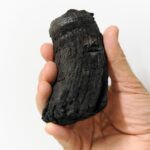New Scientist
Image: jmw120
Where there’s fire there’s often smoke – which might have been bad news for Neanderthals and other ancient hominins. Modern humans carry a genetic mutation that reduces our sensitivity to cancer-causing chemicals found in wood smoke. But Neanderthals and Denisovans apparently lacked the mutation.
Harnessing fire was one of the key events in hominin prehistory. Fire offered light, warmth, better protection from predators and the possibility of easier-to-digest cooked food. But smoke is something to be wary of. “Even today, smoke inhalation increases susceptibility to lung infections,” says Gary Perdew at Pennsylvania State University.
It might have been a significant problem during the Stone Age, given that hominins often lighted fires in caves or other enclosed areas. “If you were in a cave trying to cook, the amount of smoke you’d breathe in would be ridiculous,” says Perdew.
Our species, Homo sapiens, might have been particularly well suited to those conditions, though. Perdew and his colleagues looked at the genomes of three Neanderthals and a Denisovan, and compared them with genomes from living people and one member of our species who lived 45,000 years ago.
The researchers found that this ancient member of our species already carried a mutation not seen in either Neanderthals or Denisovans. It occurs in the AHR gene, which produces a receptor that helps regulate our response to carcinogenic polycyclic aromatic hydrocarbons often found in wood smoke. Read more on newscientist.com…








